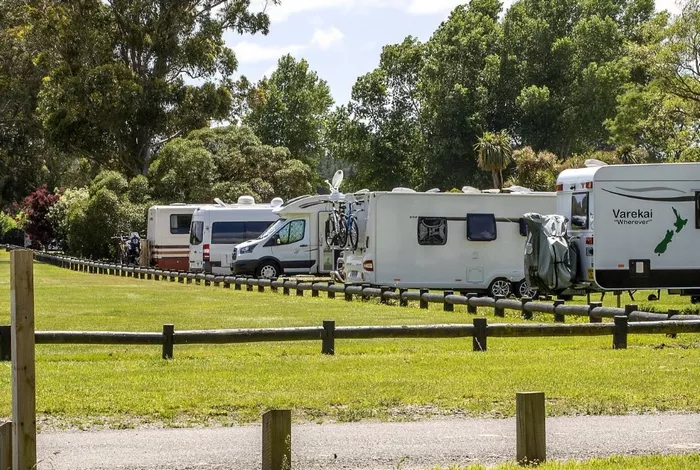Proposed changes to the Manawatū District Council’s freedom camping bylaw have drawn criticism from a leading advocate, who argues that the alterations are unnecessary and could harm tourism and local spending.
Gary Stoneley, director of NZ Lifestyle Camping, presented his concerns during a recent council meeting, objecting to what he described as “effectively a blanket ban” on motorhomes and caravans parking overnight on residential streets.
The council first introduced the possible bylaw changes in March and is expected to make a final decision on June 19. Among the proposed amendments are new allowances for freedom camping at Mt Lees and Old School Reserve in Pohangina, the removal of Halcombe Domain as a designated camping area, and restrictions limiting stays in certain locations to five nights. Additionally, Vinegar Hill would be removed as a freedom camping site from December 15 to February 9, during which it functions as a paid campground.
Stoneley questioned the rationale for stricter regulations, pointing out that no infringement fees had been issued to freedom campers over the past 10 months. He asked why the council would enforce a bylaw that introduces a risk of a $400 fine for campers, especially when there had been no evidence of problems.
He noted that many of his own guests travel in self-contained vehicles and often wish to park overnight near his residence, which under the proposed rules would no longer be permissible.
Stoneley highlighted the example of a popular parking space behind Murrays Irish Bar, frequently used by travellers to enjoy a meal or drink before staying the night. The new bylaw would put such visitors at risk of fines, likely discouraging them from spending money locally.
“Why is it in town it is OK to park during the day outside businesses and homes—but you get a $400 fine if you sleep there overnight?” he asked.
Feilding, a town that hosts major events such as Field Days and sculpture festivals, could also be impacted. Stoneley questioned why the council would choose to “restrict hundreds of kilometres” rather than leverage the tourism potential these visitors represent.
“If there is not a problem, why have a blanket ban?” he said, emphasizing the growing popularity of motorhomes and caravans among New Zealanders. He estimated there are at least 100,000 people using these vehicles as their full-time residences.
“Do we want these people [here] to come or not?” he asked.
Stoneley also raised concerns about Timona Park, where a small area is officially designated for freedom camping, but many campers end up using other parts of the park. To date, the council has not taken enforcement action in such cases, including with Gypsy travellers who occasionally stay outside designated areas.
However, the new bylaw could introduce stricter enforcement, potentially affecting community groups wanting to stay at the park overnight for events. Under the proposed rules, such groups could face a $400 fine.
“If a group stays overnight they are subject to a $400 fee—why not charge [them] a small fee?” Stoneley suggested. “Then it is not freedom camping. It’s a simple way to work around that.”
He also acknowledged the presence of homeless individuals living in the park, although he declined to comment further on the issue.
In closing, Stoneley urged councillors to consider any changes carefully, ensuring that local regulations remain aligned with the Government’s recent amendments to the Freedom Camping Act.
Related Topics
- Wagga Wagga Gears Up to Host Prestigious NSW Road Cycling Championships This August
- Carapaz Reflects with Pride on Giro d’Italia Podium Finish Despite Late Blow
- UCI Faces Defining Moment as One Cycling Project Awaits Green Light Amidst Growing Tensions

